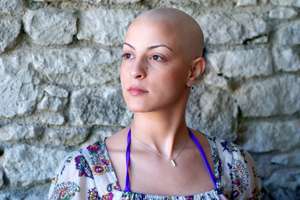Significant economic losses when young women die from breast cancer

A new study in the American Journal of Preventive Medicine, which sought to gauge the health and economic impact of breast cancer in women under age 50, finds that in 2008, deaths from the disease resulted in an estimated loss of $5.49 billion in total productivity and estimated 7.98 million years of potential life lost. Furthermore, young Black women don't appear to have the same declines in breast cancer mortality as young White women.
Breast cancer is the second major cause of cancer-related deaths in women under age 50, and between 1970 and 2008 caused the deaths of 225,866 women in that age group.
"More age-appropriate interventions with multiple strategies are needed to help reduce these substantial health and economic burdens, improve survival and in turn, reduce productivity costs associated with premature death," concluded researchers from the Centers for Disease Control and Prevention (CDC).
"You could argue that everybody has somehow been touched by a type of cancer, including breast cancer," said lead author Donatus U. Ekwueme, Ph.D., M.S. The research team looked at long-term trends in breast cancer mortality in women age 20 to 49 from 1970-2008, including ethnicity and geographic region, years of potential life lost and the economic burden of productivity value lost to premature death.
The study also found that Blacks had smaller declines in breast cancer mortality rates of just under 1 percent per year from 1970 to 2008, compared to declines for Whites of 2 percent.
"We wondered, with all the interventions and programs, whether we are making an impact," Ekwueme said. "In general, mortality for cancer, including breast cancer, has been declining—but why are some racial groups' numbers not declining?"
"Young Black women are more likely to develop triple negative disease, disease lacking ER, PR and HER2 receptors—increasingly recognized to be a generally aggressive, though heterogeneous group of breast cancers, named for an absence of targets to date," said Ann Partridge, M.D., M.P.H at Dana-Farber Cancer Institute and an associate professor of medicine at Harvard Medical School "Some of this is also clearly attributable to potential delays in diagnosis that disproportionately hurt Black women."
Generally, young women with breast cancer are more likely to die of their disease than older women. "This age and outcomes disparity is likely due to a number of complex factors including differences in disease biology and genetics, effectiveness of and adherence to therapy, access to care, and a lack of effective population-based screening in young women—especially women age 40 or younger," Partridge observed.
More work remains to be done, Ekwueme added. "We produced a piece of the pie, but haven't presented information about direct medical costs including hospitalization, medications and drugs, indirect morbidity costs, and the cost of pain and suffering. We hope that these findings are useful to decision-makers charged with allocating resources to address breast cancer in vulnerable populations."
"Interventions to improve survival for all women with breast cancer, and particularly to reduce the additional burden on young women and their loved ones and society are clearly warranted," Partridge said.
More information: Donatus U. Ekwueme, PhD; Gery P Guy Jr, PhD, MPH; Sun Hee Rim, MPH; Arica White, PhD, MPH; Ingrid J Hall, PhD, MPH; Temeika L Fairley, PhD, MPH; Hazel D Dean, ScD, MPH (2013).Health and Economic Impact of Breast "Cancer Mortality in Young Women, 1970-2008." American Journal of Preventive Medicine.













